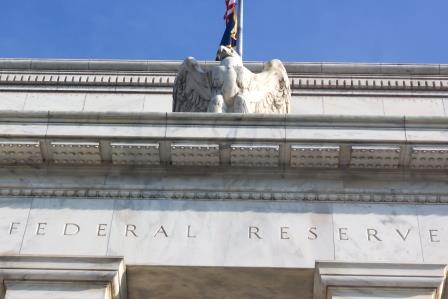Market is relaxed about the RBI policy because it was mostly in-line with the thought with no harsh norms to cut the liquidity
As anticipated, it was a dwindling week for the market, pondering about the upcoming monetary policies. Domestic market started weak in-line with global peers and elevated crude prices. The domestic market was also stared by the RBI policy, forcing investors to stay on side lined. The market was factoring rate hike up-to 50bps & viable increase in CRR. It was also wondering if any stringent measures are announced to clamp the financial market liquidity and revised GDP growth and inflation forecast.
We feel that the market is relaxed about the RBI policy because it was mostly in-line with the thought with no harsh norms to cut the liquidity. The market found some stability in between before losing the traction due to high crude prices and selling in global market ahead the Fed policy.
Governor hawkish
The governor’s commentary was hawkish, indicating further sharp rate hikes in 2022-23. Accommodative stance was withdrawn, and inflation forecast was increased by 100bps to 6.7%. Though aggressive we can ensure that the policy had no negative surprises. RBI is expected to increase repo rate up-to 6% by March 2023 from 4.9% today. In the last 7-month, Indian market was correcting factoring a change in monetary policy & high inflation. We will continue to trade with high volatility, in the short-term, however we can presume that the market has factored a good amount of this change over in the price.
This hawkish monetary policy & high inflation has led to a concern that the corporate earnings will drop. Though it is correct, it should be noted that the RBI is expecting a real GDP growth of 7.2% in FY23 from 8.7% in FY22 (NSO). And if we add an average inflation of 6% to 7% in FY23, we have a healthy nominal growth of 13% to 14%. This will help the earnings to remain steady especially for large caps, strong brands and niche segment players. Sectors like energy, consumption, infra, rate sensitive and leverage stocks will be the most adversely affected during this period.
More than the earnings slowdown, our biggest concern is further debasing of market valuation due to elevated crude, metal prices and supply constraints. The two reasons which led the world to high inflation is war and supply issue from China. The stoppage of war and reinitialization of supply from China will be the prime reason to reduce this headwind. There are early signs that war is slowing down, and Chinese economic restriction to fade in the future due to better control over Covid-19 cases.
FIIs cautious
Today, the market is dominated by the global trend where the investors are scrutinising the impact of upcoming FED policy. FIIs are cautious ahead the policy, even though the market may have factored-in an interest rate hike of 50bps. The current effective rate is 1% which is forecasted to be increased to average 2.5% in Dec 2022 and 3.25% in Dec 2023. But this aggressive policy is subject to world inflation, which will moderate or vice versa, based on development on war and Chinese supply.
Domestic investors should note that the broad market has undertaken some serious correction. The market is on a balanced situation with risk on both the sides. Banking, being neutral to rising interest rate cycle of a growing economy is amongst our top sector picks. Focus is on stocks which are low in leverage and stable cash-flows. Value buying should be the theme during economic contraction. Companies and sector which are better placed are Banking, FMCG, Agri, Chemical, IT, Telecom, Media, Hotel, Healthcare and Green theme.
First published in money9.com.









